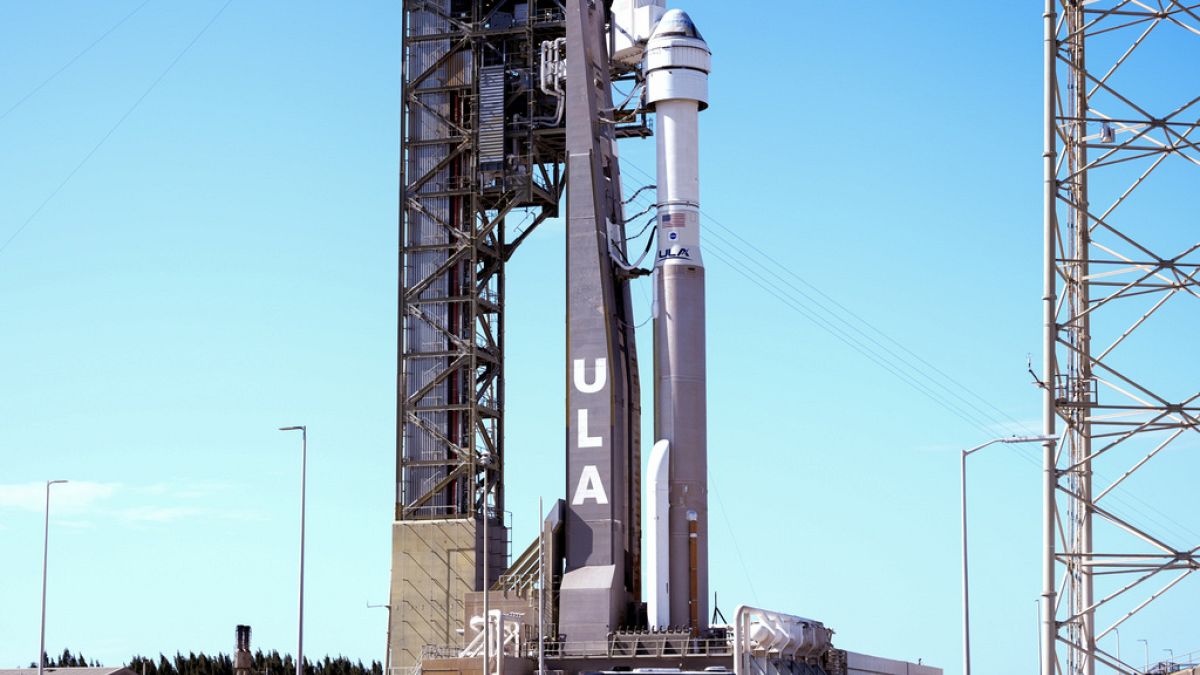Boeing called off its first attempted launch ferrying two NASA test astronauts to the ISS because of a valve problem on its Starliner capsule.
Boeing aborted the first astronaut launch of its Boeing Starliner capsule at Cape Canaveral Space Force Station in Florida on Monday because of a problem with a valve supplied by a different company.
At a press conference following the event, NASA communications spokesperson Megan Cruz said two hours before lift-off the launch team decided to “stand down” from the launch attempt, with two NASA test pilots un-fastened from their flight to the International Space Station (ISS).
United Launch Alliance CEO Tory Bruno said an oxygen pressure-relief valve on the upper stage of the company’s Atlas rocket started fluttering open and close, creating a loud buzz.
The valve may have exceeded its 200,000 lifetime cycles, he said, which means it would have to be replaced, pushing the launch into next week.
It was the latest delay for Boeing’s first crew flight, which has been put on pause because of capsule trouble.
Bruno said similar valve trouble had occurred in years past on a few other Atlas rockets launching satellites. It was quickly resolved by turning the troublesome valves off and back on. But the company has stricter flight rules for astronaut flights, prohibiting valve recycling when a crew is on board.
‘We’re going to launch when it’s safe to do so’
“And so we stayed with the rules and the procedures, and scrubbed as a result,” Bruno said at the press conference.
Associate Minister of NASA Space Operations Mission Directorate Ken Bowersox said the countdown for lift-off had been going “smoothly” until the launch team “spotted the issue”.
“They followed their flight rules and made the decision to scrub so they could do some more troubleshooting and decide what we were going to do next,” he said, adding the team still needed to “gather more data”.
NASA’s commercial crew program manager Steve Stich acknowledged it was a tough call.
“We’re taking it one step at a time, and we’re going to launch when we’re ready and fly when it’s safe to do so,” Stich said.
Within minutes of the countdown halting, Boeing’s new astrovan was back at the launch pad to retrieve NASA pilots Butch Wilmore and Suni Williams.
Starliner’s first test flight without a crew in 2019 failed to reach the space station and Boeing had to repeat the flight. Then the company encountered parachute issues and flammable tape.
NASA hired Boeing and SpaceX a decade ago to ferry astronauts to and from the space station after the shuttle program ended, paying the private companies billions of dollars. SpaceX has been in the orbital taxi business since 2020.

Dr. Thomas Hughes is a UK-based scientist and science communicator who makes complex topics accessible to readers. His articles explore breakthroughs in various scientific disciplines, from space exploration to cutting-edge research.








